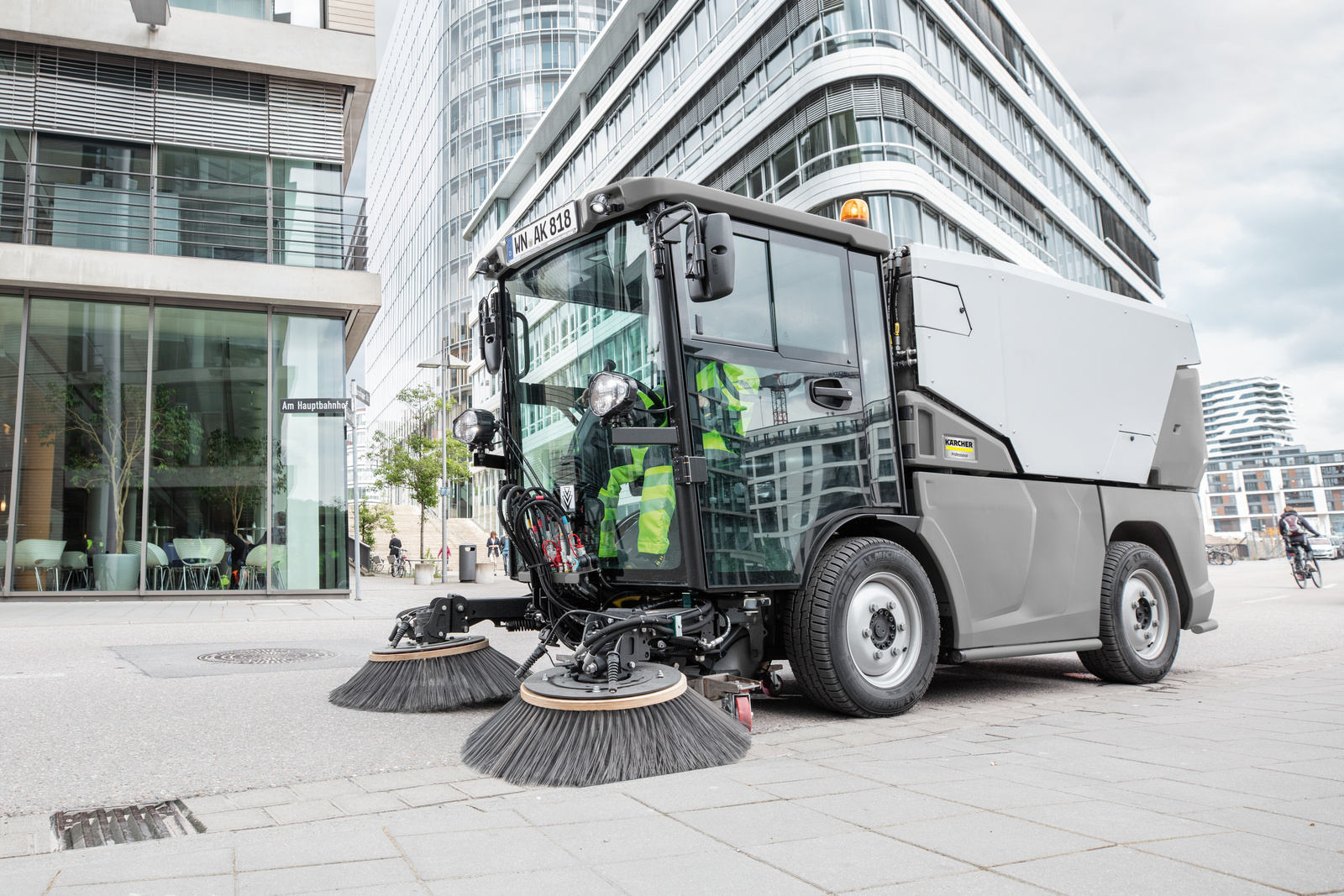Financing solutions in the cleaning industry
In rapidly expanding industries such as the cleaning sector, it’s crucial for businesses to have access to flexible financing options in order to thrive. This is particularly relevant for the acquisition of leased cleaning technology, as well as for the implementation of mobile cleaning solutions that operate on a pay-per-use basis, or for major purchases. By providing in-house financing options, cleaning technology manufacturers can simplify the financing process for businesses, eliminating the need for multiple financing sources and enabling tailored financing solutions that precisely meet the unique cleaning requirements of each business.

Cleaning industry financing solutions: unburden your workforce and lease equipment
While modern, high-performance equipment is crucial for commercial cleaning, it may not always be feasible for businesses to make a large, upfront investment in this equipment. In such cases, equipment leasing can be an effective financing option. By selecting appropriate equipment that can streamline cleaning processes and increase productivity, businesses can benefit from reduced task completion time, which ultimately translates to cost savings. With a monthly charge for the equipment lease, businesses can easily manage their cleaning expenses while ensuring that their equipment is up-to-date and effective.
How to finance cleaning and what to look out for
The concept of a ‘minimum contract term’ has garnered negative attention in the leasing industry due to automatic contract renewal if not canceled in a timely manner. However, the cleaning industry offers a variety of financing solutions that regulate contract termination differently and remind customers of the contract's end in advance.
Leasing takes into account the remaining value of the equipment at the end of the contract, allowing customers to amortize 80% of the purchase value through installment payments during the leasing period, assuming a residual value of 20%. At the contract's end, the product can be returned, the contract can be extended, or the product can be purchased at market value. In order to provide customers with the necessary information to make informed decisions about their equipment, leasing providers should actively inform customers of expiring contracts and prevent any undesired automatic renewals.


Tip 1 – Record leasing agreement correctly for tax purposes:
Leasing contracts used to be reported off-balance sheet, but since 2019 need to be reported on balance sheet. These rules became effective in 2022 for UK companies.
Tip 2 – Benefits after a contract ends:
Opting for equipment leasing can offer the advantage of upgrading to a newer machine with improved performance and energy efficiency at the end of the contract, which can be leased or purchased as per the business needs.

Pay-per-use for seasonal tasks
Certain equipment, such as those used for green space maintenance or winter care, may only be required during specific seasons. To cater to such situations, the cleaning industry offers various financing solutions, including pay-per-use options, in addition to traditional leasing methods. When selecting a cleaning equipment manufacturer, it is advisable to opt for one that does not impose a minimum usage period, as this can lead to unnecessary charges. Instead, a usage-based payment model ensures that businesses are charged only for the actual use of the equipment, including any consumable supplies required. This provides a cost-effective solution for seasonal equipment needs, enabling businesses to allocate their resources more efficiently.
Keep your business liquid, and acquire equipment via instalment plans
Alongside leasing, an instalment or payment plan is one of the most popular financing solutions in the cleaning industry. This is the option of purchasing a product via instalment payments in order to keep a business liquid and in operation. This can be useful if, for example, a trade business wants to equip its vehicles with mobile cleaning technology such as battery-operated wet and dry vacuum cleaners that a business will need long term.
What to look out for
Under UK law, a payment plan for paying in instalments is classed as a loan. The product is recorded in the customer's balance sheet and then becomes the property of the hire-purchaser when the last instalment is made. It is important that the payment plan is developed to suit the customer's economic situation.

Tip – Interrupting the contract for more flexibility:
There are some manufacturers on the market who, in addition to flexible instalments, offer the option of interrupting the lease agreement with in-house financing models. This gives customers a high degree of flexibility if required.
How do I finance cleaning on a large scale?
An extended term of payment can be suitable for customers who suddenly require a higher level of cleaning technology and a flexible solution. In the public sector, for example, budgets are often tied to specific periods of time, which is why it can make sense to extend the payment term.
What to look out for
By opting for an extended payment term, customers can receive their products immediately after placing an order and choose the most suitable financing option. The payment deadline for a lump-sum payment or payment plan can be postponed, with typical time windows of 60 days delay, but with the flexibility to adjust as long as it is reasonable and fair to the supplier. This enables businesses to manage their cash flow and allocate their resources effectively while still receiving the necessary equipment and services in a timely manner.

Tip – Check the situation regarding the extended term of payment:
There is plenty of legislation around extended payment terms, and the situation changes between small businesses and large ones. Some companies are required to report on repayment agreements in the UK. Under international law, the legal situation must be checked in each case, and the provider should also offer support in setting up the plan.
Fleet management in the cleaning industry: financing solution for bigger fleets
Large facility service providers or councils will often have large fleets of machines that they may not want to manage themselves. In these cases, choosing a manufacturer that has comprehensive fleet management in its portfolio is ideal. Financial and cleaning experts from each company work together to develop a solution that is tailored to the requirements of the customer.
What to look out for
Fleet management should include an all-inclusive offer for customers at a monthly rate. Ideally, this includes the compilation of the necessary machines and products, the organisation and distribution to different locations, following maintenance intervals, and actually carrying out any necessary services, as well as the replacement of machines or restocking products.

Tip – Develop an individualised cleaning plan:
In addition to financing solutions in the cleaning industry and fleet management, some manufacturers offer consulting services for facility service providers so customers get a customised cleaning plan developed for them.



